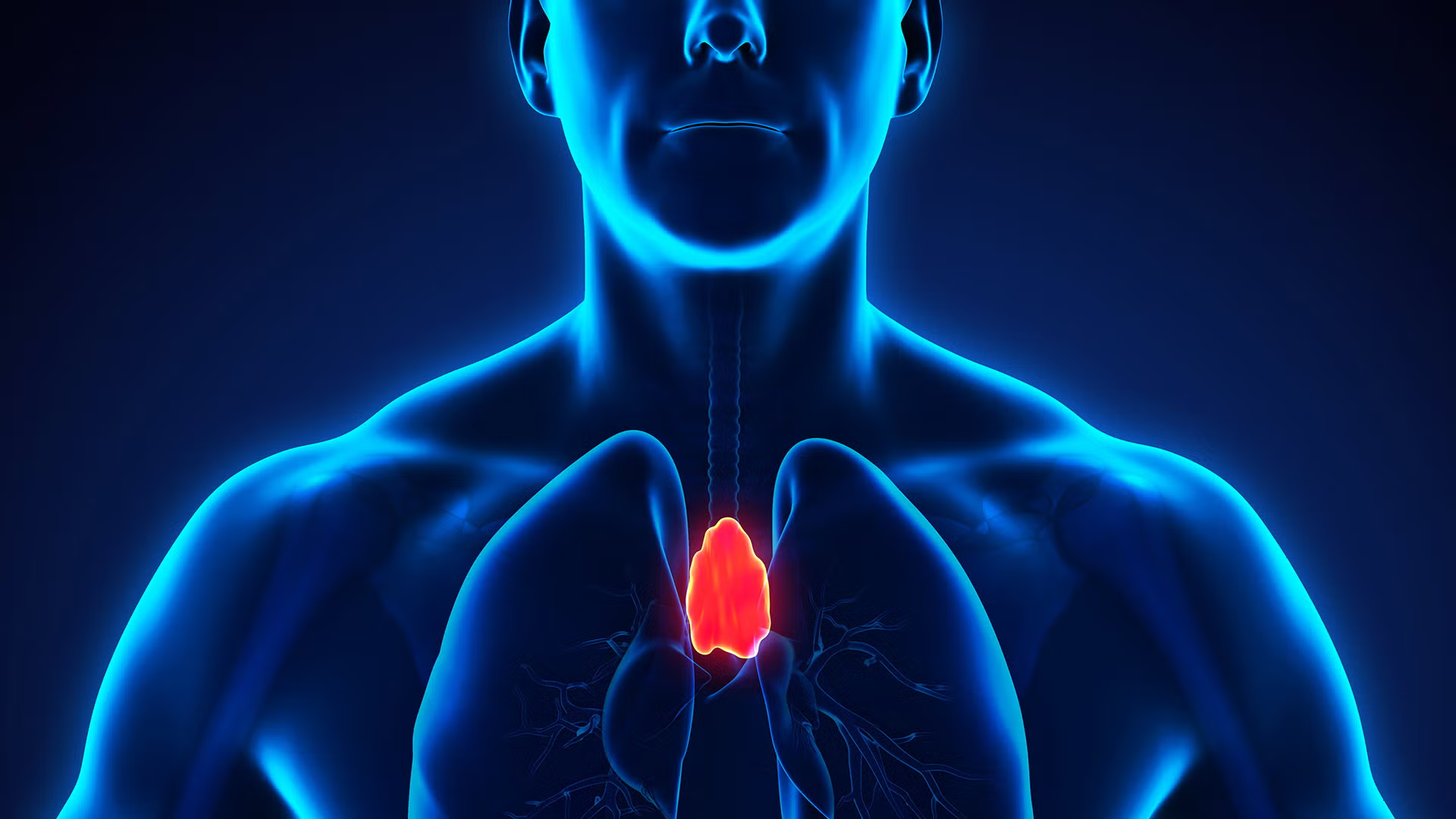
Our immune system is complex. It protects us daily. Many organs play vital roles. One small gland is often overlooked. It sits behind your breastbone. This is the thymus gland. It is crucial for immunity. It trains special immune cells. Without it, our defenses weaken. Understanding its function is key. Its role changes throughout life.
Many organs play vital roles.
Our body has incredible defenses. Various parts work together seamlessly. Bone marrow makes immune cells. The spleen filters blood. Lymph nodes trap invaders. Tonsils protect the throat. Each organ has a unique job. They all contribute to immunity. The thymus, though less known, is central. Its work shapes our future health.
This is the thymus gland.
The thymus is a specialized organ. It’s located in the upper chest. Right behind your sternum. It has two distinct lobes. It’s largest during childhood. Then it slowly shrinks after puberty. This process is called involution. Despite shrinking, it remains active. Even a small thymus is important. Its early work is foundational.
It is crucial for immunity.
The thymus plays a central role. It’s where T-cells mature. T-cells are vital immune cells. They fight off infections. They also detect abnormal cells. This includes cancer cells. Without proper T-cell training, defense falters. The thymus ensures their readiness. It gives them their specific skills. Its function is absolutely critical.
It trains special immune cells.
T-cells start in bone marrow. They travel to the thymus for schooling. Here, they learn two key lessons. First, how to recognize invaders. This means identifying foreign threats. Second, how to ignore self cells. This prevents autoimmune attacks. This selection process is very strict. Only well-trained T-cells leave. Faulty ones are eliminated here.
Without it, our defenses weaken.
A non-functional thymus is serious. Immune deficiencies result. The body cannot fight infections effectively. It struggles against viruses and bacteria. The risk of autoimmune diseases rises. The system might attack healthy tissues. Cancer surveillance also suffers greatly. The body becomes vulnerable. This underscores the thymus’s importance.
Understanding its function is key.
Knowing about the thymus empowers us. It highlights a hidden aspect of health. Its early life role is profound. It shapes our lifelong immunity. Though it shrinks, its legacy persists. It provides a foundation of defense. This knowledge is crucial for science. It aids research into new treatments. It deepens our appreciation.
Its role changes throughout life.
The thymus is most active early on. It produces many T-cells in youth. This builds our initial immune repertoire. After puberty, it involutes. Fat tissue gradually replaces it. However, it still produces some T-cells. It maintains T-cell diversity. Its early influence is lasting. The cells it trained remain active. This ensures continued protection.
T-cells mature in the thymus.
This maturation is a complex process. It happens in different thymic regions. Immature T-cells enter the cortex. They undergo “positive selection” here. They must recognize self-MHC molecules. Those that don’t, die off. Then, “negative selection” occurs. This happens in the medulla. T-cells reacting to self-antigens are eliminated. This strict training prevents harm.
This selection process is very strict.
Only the best T-cells survive. It ensures immune tolerance. T-cells learn not to attack your own body. This prevents autoimmune diseases. It’s like quality control for immunity. Billions of T-cells are made. Only a small fraction passes the test. This rigorous selection is crucial. It protects us from self-harm.
They learn how to recognize invaders.
T-cells have specific receptors. These receptors bind to foreign antigens. Antigens are unique markers on germs. The thymus exposes T-cells to these. It teaches them to distinguish targets. This is like learning enemy faces. They become highly specific fighters. This recognition is vital for defense. It’s active, precise targeting.
They also detect abnormal cells.
T-cells fight more than germs. They scan for cancerous cells. Cancer cells have altered proteins. T-cells recognize these changes. They then target and destroy them. This is immune surveillance. The thymus trains these “killer” T-cells. They act as our internal security. This protective role is continuous. It’s a critical defense mechanism.
Faulty ones are eliminated here.
This is a vital safeguard. T-cells that fail training are discarded. Those reacting too strongly to self die. Those not reacting enough also perish. This prevents harmful reactions. It ensures a safe immune system. This controlled deletion is key. It maintains delicate immune balance. It protects against autoimmunity.
The thymus and aging are linked.
As we age, the thymus shrinks. Its T-cell output decreases. This affects our immune responses. Older adults are more vulnerable. They struggle against new infections. Their vaccine responses might be weaker. Cancer risk can also increase. This link highlights aging immunity. Understanding this informs care. It emphasizes vaccine importance.
T-cell output decreases.
Fewer new T-cells are produced. The immune system relies on existing cells. These cells continue to fight. But their diversity may lessen. They might not adapt to new threats. This contributes to immunosenescence. The aging of the immune system. This decline makes us more susceptible. It’s a natural part of aging.
Thymus regeneration is a research focus.
Scientists are exploring ways. Can we make the thymus grow again? Can we boost its function in adults? This could revolutionize immunity. It might enhance cancer treatments. It could improve vaccine responses. It offers hope for immune-compromised patients. This research is highly promising. It could redefine aging and health.
This could revolutionize immunity.
Imagine reversing immune aging. It could create robust defenses. Older individuals would fight illness better. This would reduce hospitalizations. It might lessen chronic diseases. It would improve quality of life greatly. This vision drives scientific pursuit. It seeks to unlock the thymus’s secrets. It offers a healthier future.
The thymus gland, though often overlooked, is a vital immune organ primarily responsible for training T-cells to identify and fight invaders while tolerating the body’s own cells, a function critical for lifelong health.
